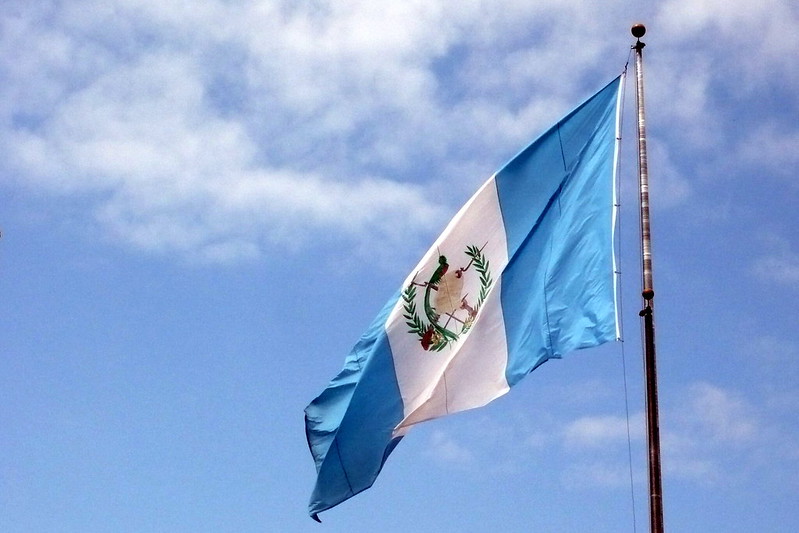 CC Image courtesy of Yörch on Flickr
CC Image courtesy of Yörch on Flickr
Chinese Influence in Latin America and The Upcoming Guatemalan Election
On June 25th, 9.4 million Guatemalans will be heading to the polls to cast their vote for the future president of the country. The stakes of this election extend beyond Latin America, as the Guatemalan election presents an opportunity for China to convert an outspoken ally of Taiwan into a Chinese ally through economic incentives. While at this time it seems unlikely that Guatemala would yield to Chinese pressures, with a political shift, a change in relations and the regional balance of power cannot be entirely ruled out.
Under President Giammattei, Guatemala-Taiwan relations have flourished. These relations date back to 1933, making Guatemala the longest ally of Taiwan in Central America and one of the thirteen “formal” allies that Taiwan has left. Taiwan has expanded its influence in Guatemala both economically and diplomatically by establishing the 2006 Taiwan-Guatemala Free Trade Agreement and encouraging discussions focused on infrastructure, investment, and trade projects with the United States and other Latin American countries. Taiwan also pays $900,000 to a United States-based lobbying firm as a way to serve and meet Guatemalan interests. With the Taiwanese President’s visit to Guatemala in April, 2023, and prior investment in a local rural hospital, President Giammattei has continued to explicitly announce his support for Taiwan.
However, with China’s growing power in Latin America and Guatemala’s upcoming election, it is time to consider the durability of the alliance moving forward. Particularly, as Taiwan has invested in maintaining and strengthening relationships in Latin America, China has done so as well. In 2016, Taiwan had twenty-two formal alliances, but since then nine countries have terminated their alliance in favor of—more specifically to reap the benefits of—Chinese economic investment. With programs such as the Belt and Road Initiative aiming to expand China’s sphere of influence and trade opportunities, China’s presence has grown in Latin America through blatant dollar diplomacy. In fact, there was a 26-fold increase in the trade between China and Latin America from 2000-2020, which is projected to double to a value of $700 billion by 2035.
Although there are political advantages to maintaining relations with Taiwan over China, such as a commitment to democracy, many countries have decided that the economic gains and security offered by Chinese dollar diplomacy are more important. This is particularly visible in Honduras, which cut off ties with Taiwan to support China primarily out of commercial economic interests, demonstrating its prioritization of economic over social and political values. Despite China bolstering economic growth initiatives in allied countries, it is important to understand that many countries have not gained the degree and ease of investment they hoped for. In many cases, instead of rapid growth, countries have delt with delayed and unsustainable projects. Honduras has already experienced this phenomenon, exemplified by the lagging development of a Chinese-funded hydropower project.
Touting the economic incentives of a partnership with China can also help governments and politicians to gain local support, especially in times of elections. As elections approach, opposition candidates across Latin America engage with China as a way of demonstrating their commitment to economic growth and investment to increase their platform’s support. Although President Giammattei has stated his desire to maintain relations with Taiwan, in recent years, concerns have arisen over the alliance’s benefits. Uncertain local Guatemalans and candidates see trade with China as advantageous, allowing for increased economic opportunities for the country. A center-left or right-leaning candidate victory, such as Sandra Torres or Zury Ríos, may be more inclined to diminish the relationship out of interest in growing one with China or clash with the U.S. Biden Administration. Despite limited discourse by candidates on the China vs. Taiwan matter, a new Guatemalan administration could be persuaded by China’s persistent encouragement to Guatemala to take its side as a result of promised economic success. Thus, with a new president, the possibility for a change in alliance and policy should be taken seriously.
Though it seems the likelihood of Guatemala severing ties with Taiwan is slim because of the countries’ long and productive relationship, the Guatemalan election season holds a lot of unknowns which leaves future relations in a state of uncertainty. Considering China’s growing sphere of influence in Latin America, Taiwan is struggling to hold a strong grasp on the alliances it has, leaving countries to consider if pure economics are more compelling than political and social values. With this delicate international balance of power in question, the upcoming election in Guatemala is one to watch.
Photo Licensed under Creative Commons Attribution-NonCommercial 2.0 Generic (CC BY-NC 2.0).





